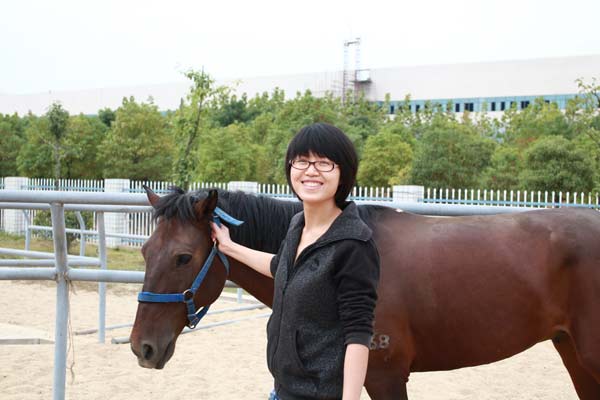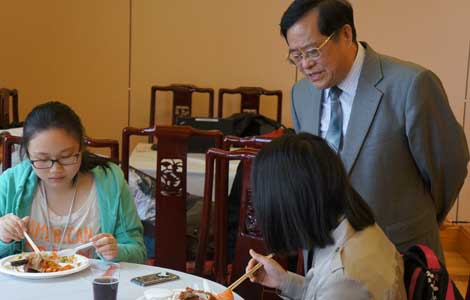Courses help hopefuls saddle up
Updated: 2013-07-12 00:36
By Sun Xiaochen in Beijing and Zhou Lihua in Wuhan (China Daily.)
|
||||||||
|
 |
|
Ye Runfang with her horse at a training ground. |
As there was no previous postgrad model to go on, the curriculum at Wuhan Business University was based on a survey of Chinese clubs as well as academic models at universities overseas.
Over two years, Ye and her classmates, Shi Jiahui and Li Xiang, completed theoretical studies in sports management, club operation and English before taking practical courses on riding, grooming, equine disease prevention and stable management.
Training was conducted at the college farm in Wuhan, capital of Hubei province, and all three interned at partner clubs to gain hands-on experience.
"Coming with nothing but a simple interest, we improved our understanding of the business and our knowledge of almost every aspect of the industry," said graduate Li, who now works as a riding coach at Shanghai's Songsheng Equestrian Club.
"It gave us an edge, so it was a little easier for us to get started," she added.
However, the college says there is still much to be done to improve the program, with the priority to build a qualified faculty. Of its 15 teachers, only one has a background in equestrianism, while the others have all transferred from other fields.
"If we'd have had more experienced teachers and more time working in the farm, it would have been better," Shi said. "But it's just the beginning."
The cost of keeping the horses and improving facilities is another headache. Xia said feeding the farm's five horses, all donated by nearby clubs, costs more than 20,000 yuan a year — about 2,000 yuan more than the annual tuition fees for the three students combined.
"It's already a burden, let alone the investment to expand the farm and buy more horses," he added.
With few campus resources, students spent limited time on practical skills such as grooming and stable maintenance, which could affect their career prospects.
"After all, we value a candidate's skills rather than what degree he or she has,'' Beijing club executive Lin explained.
Funds from national and provincial education authorities have temporarily helped the program in Wuhan make ends meet, and in the long term the budget concerns may be eased by involvement from clubs, both in terms of expertise and financial support.
More than a dozen clubs in Beijing, Tianjin and Guangdong and Sichuan provinces have teamed up with the program and will provide development funds and further internship opportunities.
"Everything is hard at first," Xia said. "But we're confident we can push forward with growing support from the industry."
Most Viewed
Editor's Picks

|

|

|

|

|

|
Today's Top News
Constructive mood at Sino-US talks
China, Russia consider increasing naval drills
2 pilots called for Asiana to abort landing
Increased cooperation brings benefits
Japanese defense report lashed out
Lifesaving top priority, premier says
China's astronauts ready for challenge
Top GSK executives investigated
US Weekly

|

|













